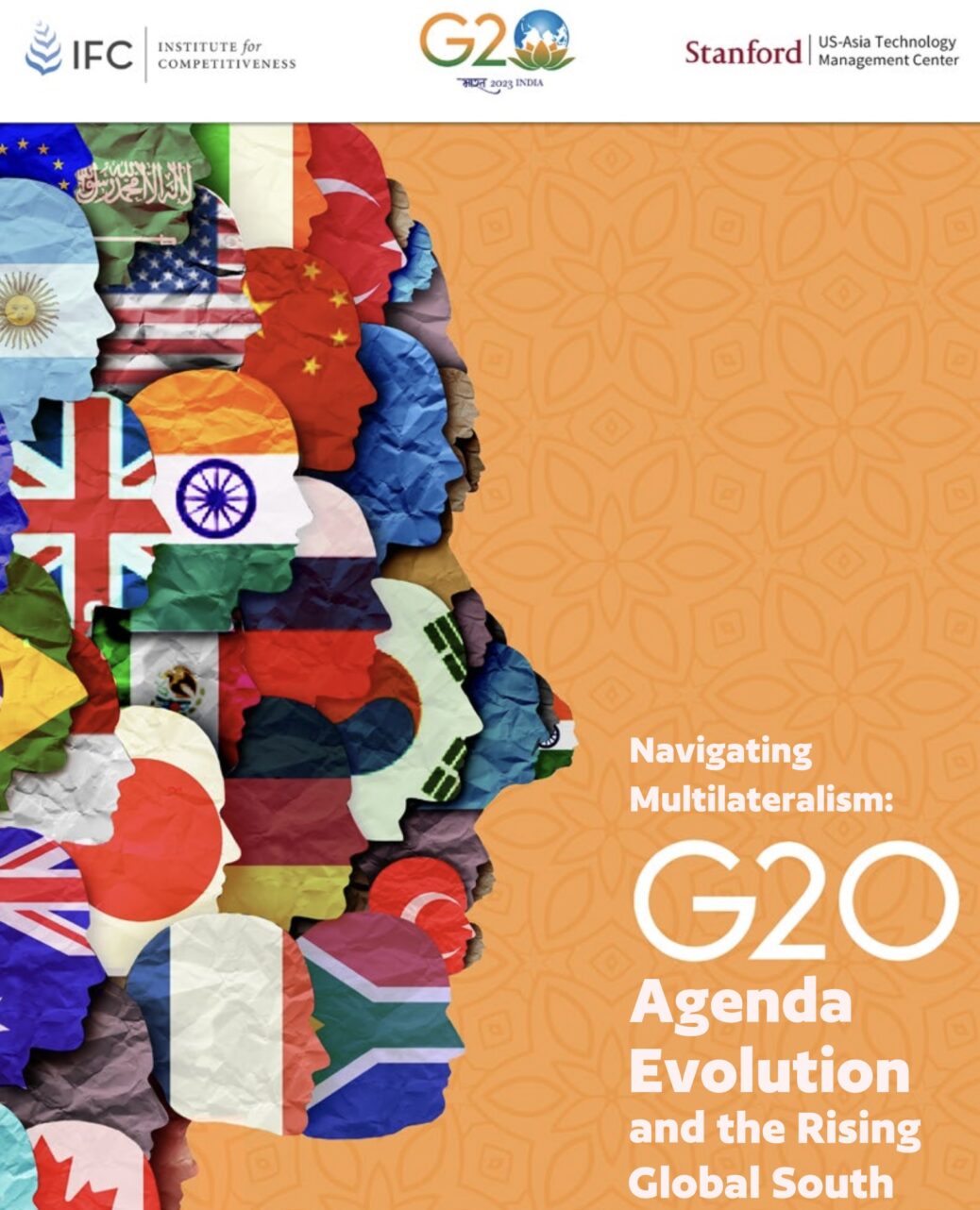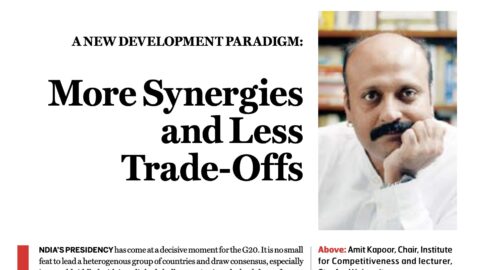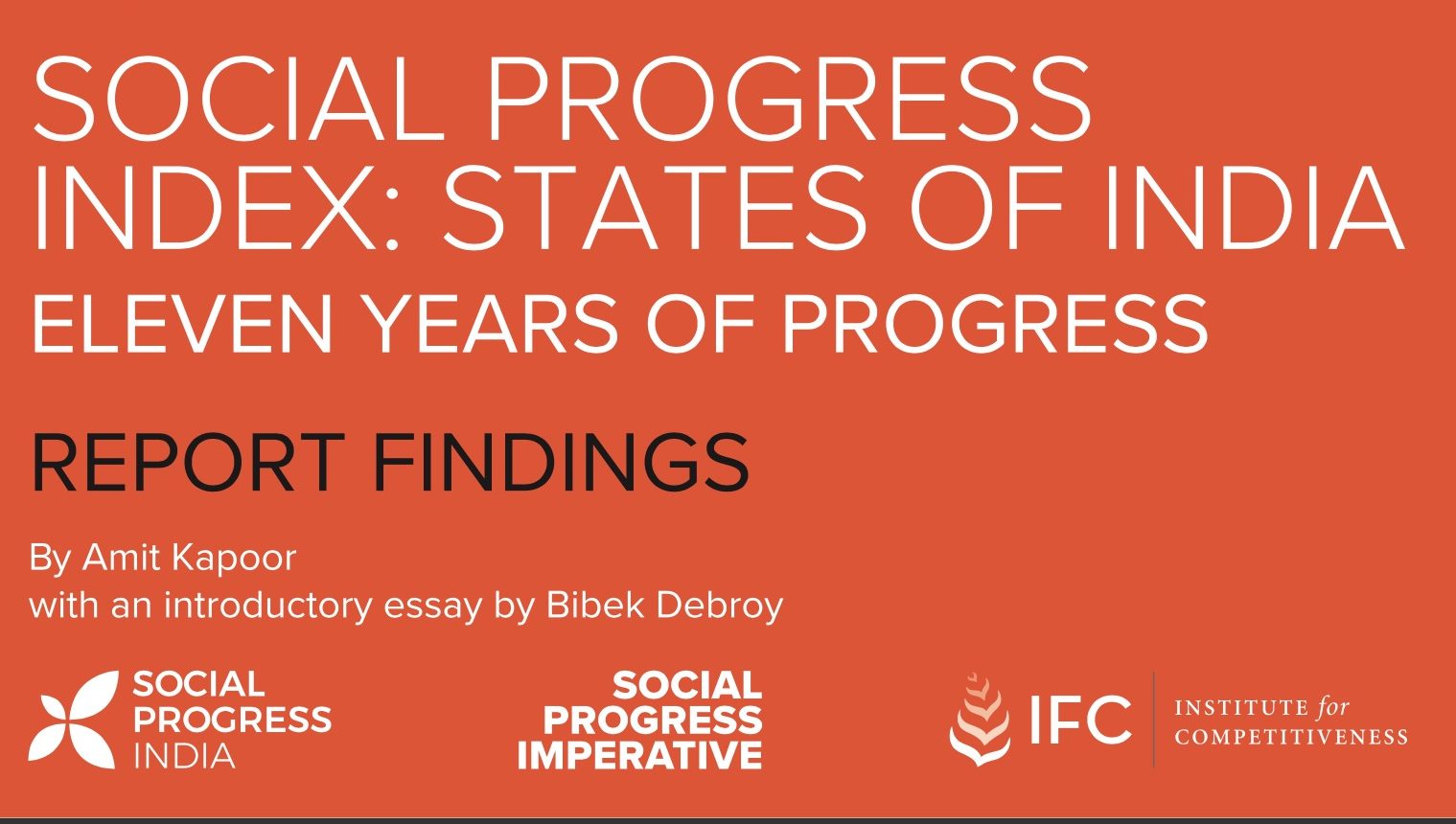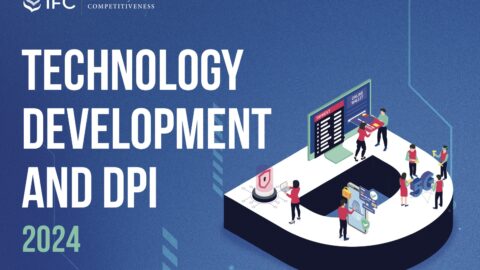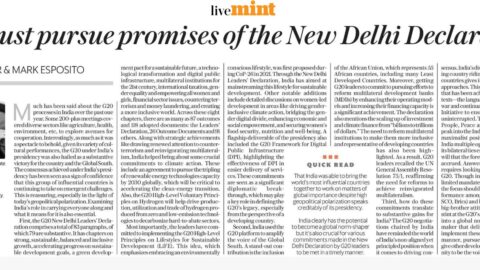From its inception as a forum to facilitate global cooperation during economic crises, the G20 has consistently faced criticism for its perceived bias towards economic matters. Thus, the study is guided by the research question – How has the G20 agenda evolved over the years? To this end, the study provides a comprehensive analysis of the G20’s agenda evolution, with a particular focus on the theme and strength of commitments in the Leaders’ Declarations. To conduct the analysis, this study employed two research methodologies – content analysis and language analysis. The content analysis maps the G20 Leaders’ Declarations to the themes of the Sustainable Development Goals (SDGs), offering insights into thematic priorities and trends over time in the forum’s agenda. Language analysis identifies strong commitments within these declarations and categorizes them as economic or socio-environmental commitments, based on their first point of impact.
The study concludes by highlighting the challenges faced by the G20 and the trends in the evolution of its agenda. While it initially prioritized economic issues, as global challenges became increasingly multifaceted, the G20 adapted by expanding its scope to address a broader range of issues. This adaptability is crucial because the forum’s relevance depends on its ability to respond to contemporary issues affecting the planet’s well-being and future, such as climate change and pandemics.
Read the complete report.
G20_Report_Final_Web_Version_29Jan24

